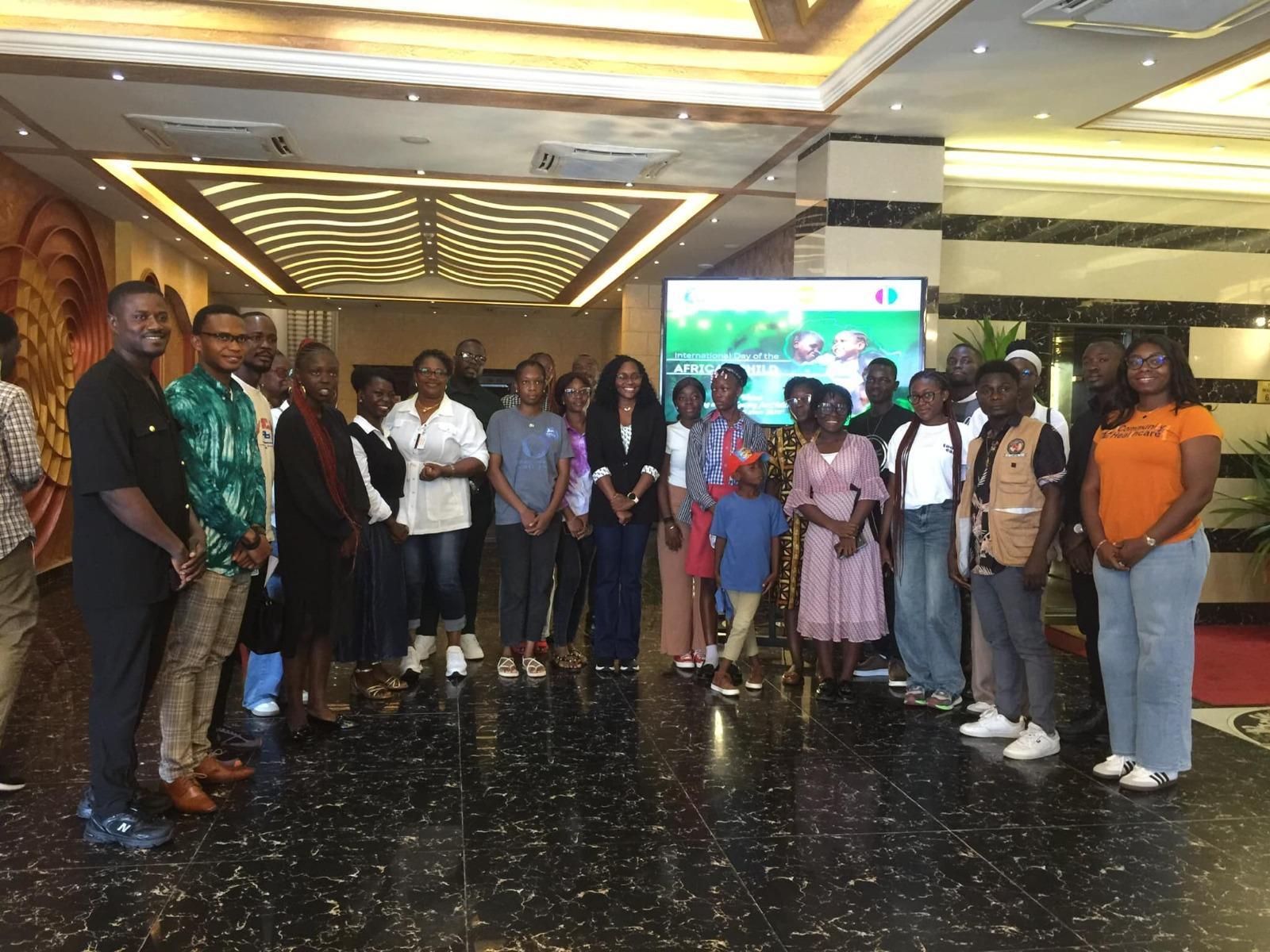Africa-Press – Liberia. The United Nations Population Fund (UNFPA), in collaboration with the Youth Network for Positive Change (YOUNETPO), hosted a program commemorating the Day of the African Child (DAC) with a strong call for improved planning and budgeting to advance children’s rights in Liberia.
The event, held at the Boulevard Palace Hotel in Monrovia, brought together young people—primarily students—and featured panel discussions and awareness activities centered around key issues affecting children and adolescents in Liberia.
YOUNETPO facilitated a high-level panel discussion focused on eliminating Female Genital Mutilation (FGM), while the AASGBV held a parallel event at Peace Island to promote menstrual hygiene among adolescent girls.
Throughout the event, speakers and participants emphasized the urgent need to support every Liberian child and to eliminate harmful practices, including FGM, while promoting menstrual hygiene and broader health and protection measures.
The 2025 Day of the African Child is being observed under the theme: “Planning and Budgeting for Children’s Rights: Progress Since 2010.”
The theme aims to assess how African Union (AU) Member States have mainstreamed children’s rights into national development plans and budgets and encourages governments to adopt a child rights-based approach to governance and planning.
Delivering the keynote address, Laura Golakeh, Deputy Minister of Gender, Children, and Social Protection, reflected on the day’s historical significance and the current realities children face in Liberia.
“The Day of the African Child reminds us of the brave children of Soweto, South Africa, who on June 16, 1976, rose up against injustice and fought for their right to education and dignity,” said Deputy Minister Golakeh. “Today, nearly five decades later, their courage continues to inspire our struggle for a continent where every child is valued, protected, and empowered.”
She challenged stakeholders to reflect critically on Liberia’s progress:
“We need to ask ourselves, have we done enough? Are our plans and budgets truly child-centered?”
Deputy Minister Golakeh highlighted significant progress made since 2010, including the ratification and domestication of key international child protection instruments such as the African Charter on the Rights and Welfare of the Child. She noted that Liberia continues to align its laws and policies with international standards.
“We developed and implemented national frameworks such as the National Child Well-being Policy, the Children’s Act, and the National Social Protection Policy, creating a safer, healthier environment for our children,” she said.
She also cited increased government budget allocations toward education, health, and social protection, including programs like school feeding schemes, child immunization drives, and cash transfers to vulnerable households, which have positively impacted thousands of children.
“We have strengthened coordination between government, civil society, and development partners through mechanisms such as the National Child Protection Network, which works tirelessly to prevent abuse, exploitation, and harmful traditional practices,” she added.
Also speaking at the event, Dr. Leo E. Tiah welcomed participants and stressed that the lack of resources and weak implementation mechanisms are key obstacles to realizing children’s rights.
“The failure to properly account for child protection in national programs, inefficient use of resources, and limited participation of children in planning and budgeting continue to undermine child development,” Dr. Tiah said.
He emphasized that children in Liberia still face numerous challenges and called for increased child-sensitive budgeting to address harmful practices such as child marriage, FGM, and gender-based discrimination.
“These are violations of children’s rights and are often perpetuated by poverty and lack of targeted interventions,” he warned.
The Day of the African Child, commemorated annually on June 16, serves as a reminder of the need for African nations to prioritize the rights and welfare of children in policy and practice.
For More News And Analysis About Liberia Follow Africa-Press






